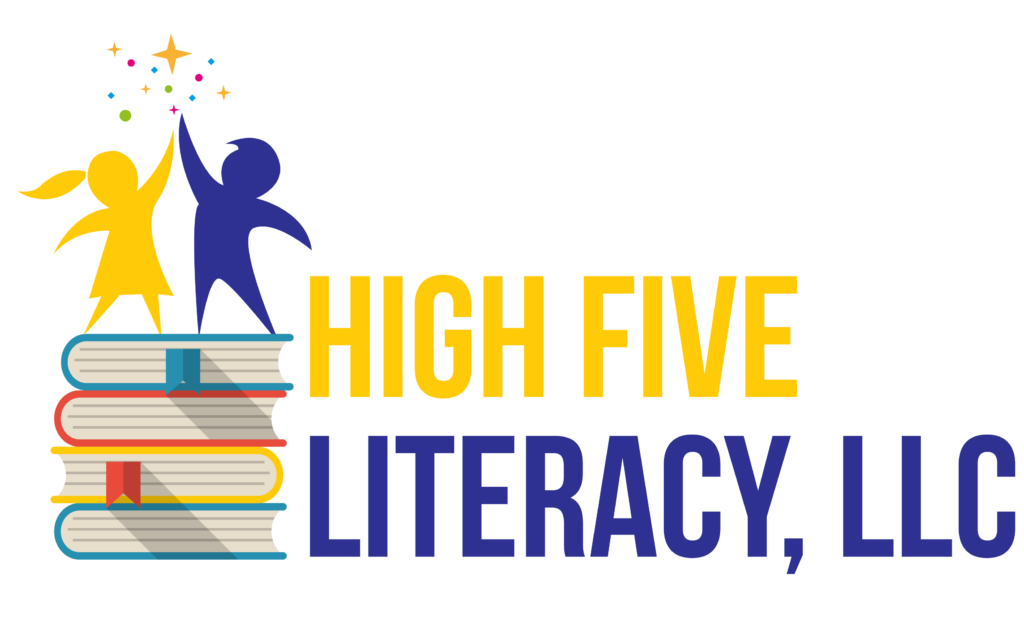 One of my goals has been to foster change in early childhood education and have Structured Literacy become the default instructional approach used for all children in grades K-3. I am convinced that if such a change were to occur and classroom teachers expected to learn and utilize scientifically-based instructional methods, the obscene number of children who struggle to learn to read and need intervention would be drastically reduced. In an article I posted during Dyslexia Awareness Month, I suggested, somewhat controversially, that to truly provoke lasting and broad-based change, it might be beneficial for grassroots parent groups to change the focus of their advocacy from the 20% with dyslexia to the 60% who struggle to learn to read due, in large part, to misguided philosophy and faulty curricula. The Science of Reading establishes that all brains learn to read the same way, whether dyslexic or not, and an explicit, structured literacy approach, adjusted to accommodate each child’s specific circumstances and need for repetition, is the best and most proven method for teaching all children to read. I opined that only by making the issue relevant to everyone, not just those families with children dealing with dyslexia or other learning disabilities, would the education establishment take notice and effect necessary changes.
One of my goals has been to foster change in early childhood education and have Structured Literacy become the default instructional approach used for all children in grades K-3. I am convinced that if such a change were to occur and classroom teachers expected to learn and utilize scientifically-based instructional methods, the obscene number of children who struggle to learn to read and need intervention would be drastically reduced. In an article I posted during Dyslexia Awareness Month, I suggested, somewhat controversially, that to truly provoke lasting and broad-based change, it might be beneficial for grassroots parent groups to change the focus of their advocacy from the 20% with dyslexia to the 60% who struggle to learn to read due, in large part, to misguided philosophy and faulty curricula. The Science of Reading establishes that all brains learn to read the same way, whether dyslexic or not, and an explicit, structured literacy approach, adjusted to accommodate each child’s specific circumstances and need for repetition, is the best and most proven method for teaching all children to read. I opined that only by making the issue relevant to everyone, not just those families with children dealing with dyslexia or other learning disabilities, would the education establishment take notice and effect necessary changes.
The discussion over the benefits and drawbacks of focusing on dyslexia when advocating for appropriate literacy education for our children has been around for a while. I just watched a compelling debate on YouTube called Dyslexia Diagnosis, Scientific Understandings, and Belief in a Flat Earth, in which Professor Julian Elliott, of Durham University and co-author of The Dyslexia Debate, discussed whether using the term “dyslexia” is helpful or harmful and whether it should continue to be used at all.
Professor Elliott presented his argument that the diagnosis “dyslexia” is a distraction because it implies that it exists separate and apart from general reading difficulties. Dyslexia, according to Professor Elliott, is synonymous with poor reading, and he points out that even Mark Seidenberg and other top reading researchers describe poor readers as merely being at “the low end of normal.” He doesn’t believe that there should be a need to go to an “expert” to get an evaluation to try to identify a subset of poor readers. Poor readers are not hidden, and any diagnostician can tick off and interpret a long list of symptoms and overlapping conditions that frequently are present in children struggling to read. It is not necessary to hunt around for factors and symptoms that are specific to dyslexia.
There is also, according to Professor Elliott, a misconception that there are special interventions that fit the dyslexia diagnosis and that there is something different one must do for this subgroup. Wrong, he says. The SAME interventions work for ALL struggling readers! There is no evidence that brain training, memory training, auditory processing training (different from phonological awareness training), vision training, or motor training make a significant difference. The only interventions necessary are the ones that work on the SKILLS necessary that impact overall reading. He stressed the need to move away from expensive and time-consuming tests and focus on the actual skills needed to be successful. Any poor reader needs really good teaching and effective interventions, whether they have dyslexia or not.
One argument made for continuing to use the term dyslexia involves the issue of self-esteem. For individuals struggling with reading, the diagnosis helps explain why they are not developing at the same pace as others. Many people are embarrassed by their inability to learn, and the dyslexia label can be empowering for them. Without the diagnosis, dyslexia advocates feel that others will misinterpret their difficulties and attach labels such as “stupid” or “lazy” instead. They cannot understand why anyone would want to ban the use of a term that explains why reading, spelling, and writing are difficult for them or their children.
Some also expressed concern that abandoning the use of the label would give the impression that dyslexia does not exist. If we cease using the term dyslexia, then where do we draw the line for other known disorders? Should we also reevaluate the use of other terms such as Developmental Language Disorder (DLD), Autism Spectrum Disorder (ASD), or Attention Deficit Hyperactivity Disorder (ADHD)? Should DLD be referred to as “social communication difficulties”? Should we no longer refer to ADHD and just call it “poor behavior”? Throughout the debate, it was acknowledged that such terms are useful for identifying disabilities and getting children the proper help. While all agreed that it would be nice to get support based upon need without any labels attached, the dyslexia advocates were adamant that this would be unlikely. Utopia doesn’t exist, and eliminating the diagnosis and label would mean reduced resources.
Professor Elliott seemed to recognize that the diagnosis of dyslexia provides comfort to parents of struggling readers, who anxiously await the evaluation and are relieved when they have a label. They believe that the label will open doors for them so their children can rightfully retain services and resources. But, Professor Elliott asked, “Is this equitable?” Is there actually a reason to have a subgroup labeled “dyslexia” if the underlying skill deficits are the same for ANY struggling reader? He believes the term fuels the “dyslexia industry” but serves no purpose in the education system. Getting this label, he asserts, gives SOME children the advantages of quality instruction while leaving others to go on endlessly in ineffective reading programs.
Professor Elliott did admit that keeping the dyslexia label is a powerful way to influence government, and if it were not used, there would be reduced pressure for funding and support. He said if this is the case, we might as well call all struggling readers dyslexic or reserve the term for the few who already have received high quality, evidence-based instruction and intervention for years but have not progressed. The label would be more meaningful if we narrowed the focus to just the ones who are true resistors of instruction.
As a parent, I would want the diagnosis and label of dyslexia if it meant better instruction and intervention for my child, as well as positive self-esteem. But as a proponent of evidence-based reading instruction for all children, it is unconscionable that, given the research on word-reading disorders, we live in a society where only some children gain access to the right to read.
Faith Borkowsky, Founder of High Five Literacy and Academic Coaching, is a Certified Wilson Dyslexia Practitioner, is Orton-Gillingham trained, and has extensive training and experience in a number of other research-based, peer-reviewed programs that have produced positive gains for students with dyslexia, auditory processing disorder, ADD/ADHD, and a host of learning difficulties. Her book, Failing Students or Failing Schools? A Parent’s Guide to Reading Instruction and Intervention, is available on Barnes and Noble https://www.barnesandnoble.com/w/failing-students-or-failing-schools-faith-borkowsky/1128896546 and Amazon https://www.amazon.com/dp/1937615456/

5 Comments. Leave new
Faith,
I love your thoughts! I agree wholeheartedly that all children deserve access to quality, systematic reading instruction, and that these should not be reserved for only those with a label. It seems so logical to me that if we taught everyone like we did dyslexics beginning from the beginning of schooling, we’d have a much smaller number of students needing intervention. Thank you for your post.
What an unusual out of the box solution. My first thoughts are to agree with you, but I want to think about this more and consider it freedom all angles.
This is an excellent and succinct summary of the issues in the debate highlighted by Julian Elliott – thank you so much. I’m adding it to the thread at the International Foundation for Effective Reading Instruction that features the Dyslexia Debate.
A link to your post now provided here, Faith: https://iferi.org/iferi_forum/viewtopic.php?f=3&t=1185&p=2443#p2443
[…] specialist Faith Borkowsky published an interesting blog on the dyslexia diagnosis debate. One point that stood out to me is that every child can learn to read, and whether the reading […]